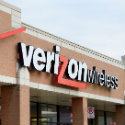Verizon snatched some Audi business away from AT&T, partly thanks to its support of eSIM technology in connected cars. But it might be more of a moral victory for Verizon than a major shift.

Audi confirmed that Verizon has replaced AT&T as the wireless carrier providing connections in its newest cars.
However, the development represents more of a moral victory for Verizon than a market-shifting triumph, given Audi's relatively paltry share of the US auto market and AT&T's hefty position in the wider connected car space.
Nonetheless, the news does signal Verizon's intention to leverage new technologies like eSIM to improve its standing in a market where many believe it has surrendered significant ground to AT&T.
Verizon's win at Audi was announced in a relatively cryptic press release last week. Verizon's business unit said it would deliver "advanced connectivity and embedded in-vehicle WiFi" in the 2020 Audi A4 and A5 models in the US.
"Our partnership with Audi is providing customers with a fast and reliable WiFi experience and the opportunity to connect to devices and stream content outside the four walls of their home," said Andy Brady, a Verizon VP, in the release.
That's a turnaround from four years ago, when AT&T touted a "multi-year" agreement with Audi. "We are thrilled to continue our long-standing relationship with Audi and to provide next-generation technology to a number of their car models," AT&T Chris Penrose said at the time.
An Audi spokesperson confirmed that the automaker has decided to switch wireless providers in its latest cars. "Verizon is our new partner with the 2020 Audi A4/A5," wrote Audi spokesperson Jacob Brown in response to questions from Light Reading on the topic.
Audi's shift from AT&T and to Verizon started in 2015 when the car company inked an agreement with Dublin, Ireland-based Cubic Telecom as the vendor to manage its wireless connections. At the time, Cubic described itself as a "leading cloud based M2M [machine-to-machine] platform provider," but nowadays the "M2M" phrase has been replaced by the "Internet of Things" (IoT).
Brown explained that Verizon is Audi's sole provider for its 2020 automobiles using the third generation of the company's MIB (Modular Infotainment Platform). He said the rest of Audi's lineup will continue to use older MIBs and AT&T's connections.
eSIM advancements
Perhaps the most interesting part of Audi's move from AT&T to Verizon involves eSIM technology. This technology has been a longtime element in the M2M/IoT space because it allows customers like Audi to remotely change wireless providers with a simple software update. With eSIM, Audi and other IoT companies don't have to physically replace the SIM card in each vehicle in order to change the provider that connects the vehicle to the Internet.
"Select 2020 Audi models in the U.S. will also be integrated with Verizon's eSIM enabled network, helping streamline wireless carrier capabilities globally in Audi vehicles," Verizon noted in its new release.
"The ultimate objective of the platform is to have Verizon, T-Mobile and AT&T available for the consumer to choose," wrote Roger Lanctot, director of automotive connected mobility at analyst and consulting firm Strategy Analytics, in response to questions from Light Reading. "As you might imagine, AT&T has its nose a little out of joint regarding going along with this non-exclusive relationship and is dragging its heels a bit... Verizon, meanwhile, has zero qualms about hopping aboard."
Audi's spokesperson said that "while eSIM technology does technically allow for carrier-of-choice, we have not announced any plans at this time."
Not a sea change
Verizon famously lost GM's Onstar business to AT&T in 2013. That shift set the stage for AT&T to rack up deals with many of the world's biggest automakers. "AT&T dominates the connected car segment with 11 straight quarters of 1M or more connected car net-adds," Chetan Sharma Consulting wrote in 2018.
And that momentum doesn't seem to have slowed all that much. "During the third quarter and for the first nine months of 2019, we added approximately 2.1 million and 6.2 million wholesale connected cars through agreements with various carmakers, and experienced strong growth in other Internet of Things (IoT) connections," AT&T wrote in its latest quarterly filing with the SEC. "We believe that these connected car agreements give us the opportunity to create future retail relationships with the car owners."
Further, though Audi's parent company Volkswagen Group is one of the world's biggest automakers, Audi's market share in the US sits well behind the likes of GM (17.5%), Toyota (15%), Ford (12.6%) and Kia (7.6%), according to auto information outlet Edmunds. Thus, Verizon's win at Audi must be put into context.
Whether Verizon's newfound activity in the automotive sector -- however minor -- will result in a broader shift remains to be seen.
— Mike Dano, Editorial Director, 5G & Mobile Strategies, Light Reading | @mikeddano
About the Author(s)
You May Also Like










